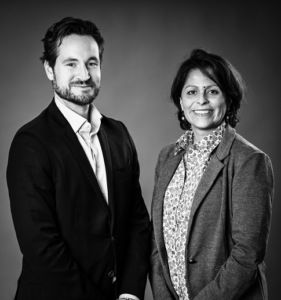News
Integration key to a successful relocation – with help from globally-minded locals
This article is more than 7 years old.
Globally Local doesn’t just hold back the waters of the Red Sea to assist expats and repats, it brings the Promised Land towards them to meet them halfway

Relocating can be overwhelming (photo: Nick Rice)
A professional on his first day of work unsure of the country’s corporate etiquette; a spouse negotiating a new land without friends; and an equally lonely boy and a girl on their first day of school unsure of how to behave in class and at leisure.
It sounds like the start of a Susanne Bier movie, but it is in fact the situation faced by millions of relocating families every year across the world, so it’s no surprise to note the recent proliferation of companies that specialise in helping them to settle.
The Charlottenlund-based company Globally Local, though, goes one step further. To successfully settle, it contends, the family should be encouraged to integrate.
To achieve this, it not only holds back the waters of the Red Sea to assist them, it brings the Promised Land towards them to meet them halfway. Integration is a two-way street after all!
Recruitment, relocation, reception, retention
Relocation is a serious business for Danish employers anxious to recruit foreign specialists with knowhow they can’t find in their own country. Recruiting them is costly, so retaining them is high on their agenda.
And it does not end with the employee, as an unhappy spouse or withdrawn child can derail the relocation in the blink of an eye. Sometimes giving the family the tools to succeed isn’t enough – they need hands-on help.
Globally Local’s consultants open doors that their clients would not have found on their own accord, ensuring what’s waiting behind is receptive, internationally minded and open to adaptation.
Helping society to reach its full potential
“My mission is to help make Denmark a more dynamic and inclusive place to live and work. I believe to do this we need to create a society in which Danes and expats can inspire each other in order to help Denmark reach its full potential,” explained Globally Local managing director Thomas Mulhern to CPH POST.
Mulhern, himself a US expat married to a Danes, is the former international department head at Institut Sankt Joseph Copenhagen, where he created the first fully Danish/English bilingual school program in Denmark.
“Danes and expats were able to move outside their comfort zones and break down the barriers of segregation and assimilation,” he recalled.
“In its place we were able to succeed in creating a hybrid culture in which authentic integration was possible for expat and global Danish families and authentic internationalisation was possible for Danes seeking a more global approach.”
Working with the Danes: the hosts and the repats
Globally Local’s approach means they are just as likely to work with the Danes involved in the integration. It could be a teacher at the children’s school, an official at a public institution, a co-member at a leisure club, and most particularly the recruiting company.
“We work with your company on providing a work culture that helps to internationalise Danes, while meaningfully integrating expats and global Danes,” added Mulhern.
“Our services help to reduce costs associated with turnover, while simultaneously enhancing the retention of global talent within an organisation.”
Globally Local’s services are not only relevant to relocating internationals, but also repats. Mulhern estimates that 90 percent of the company’s solutions equally apply to re-integrating.
Tailored and unique solutions
Globally Local uses tailored and unique solutions that are meaningful and lasting, enabling Danish businesses to retain the international employees they so badly need whilst giving the expats a true sense of belonging.
Globally Local tirelessly promotes intercultural exchanges, provides crucial networking opportunities, creates fully bilingual school and work cultures, gives expats a voice as they begin their integration journey, and creates conditions that provide global and local talent incentives to stay.
It is able to provide psychological counselling, educational guidance and support, Danish and English linguistic support, assisting HR/Global Mobility Units, cultural awareness consulting, networking facilitation, legal immigration assistance, change management and transition, CSR expansion, branding a global company in Denmark, kick-off workshops and seminars.
Its consultants and strategic partners are all experts in their fields, providing maximum insight into specific services.
Mulhern’s partner, Globally Local co-founder Anita Mayntzhusen, for example, is a psychologist who specialises in the field of relocation.
Mulhern knows first-hand how difficult relocating can be.
“I have experienced first-hand the barriers that make integration so difficult. I have also learned the tools necessary to breaking down these barriers and what it takes to integrate, contribute and ultimately make Denmark a lasting home,” continued Mulhern.
“Helping people to integrate is truly a win-win for both the individuals/families involved and the companies/public institutions/schools that they are a part of, as we together realise the positive potential of a thriving global community contributing to the local Danish society.”
Find out more here.












































